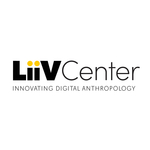UNESCO, LiiV Center report on the global state of Digital Anthropology highlights role new innovations in discipline can play in helping public and private sector decision-makers ensure policies, technologies and solutions are more human-centered, ethical and inclusive
NEW YORK--(BUSINESS WIRE)--Efforts to understand how the Internet and technology are changing the human experience varies widely across the globe, potentially impacting the ability of public and private sector decision makers to develop policies, technologies and solutions that are more human-centered, ethical and inclusive.
A report, issued today by UNESCO, the United Nations Educational, Scientific and Cultural Organization, and the non-profit LiiV Center, outlines how the emerging field of Digital Anthropology, which looks to gain a better understanding of people and communities in the digital age, is being applied in various regions of the world.
New Horizons in Digital Anthropology is based on in-depth, qualitative research conducted by digital anthropologists in Asian and Pacific States, Latin America and the Caribbean, African and Arab States and European and North American States.
The report is the first global research effort to lay the groundwork for understanding the current state of digital anthropology as a discipline and to consolidate multiple efforts to create a shared understanding. It also outlines the forces that are helping to move forward as well as hinder the development of this field and provides recommendations to accelerate its growth.
�Quantitative and economic data alone struggles to make sense of human needs and behaviors, and yet plays a leading role in public policy and decision-making,� says Katie Hillier, President and Chief Digital Anthropologist, of the LiiV Center. �Anthropology is the study of people and communities - and in the digital age - digital anthropology plays this role. This new field blends human science and data science to understand people and communities at scale and depth - and it will define the next era of innovative human sciences.�
The report maps the landscape of innovation in digital anthropology as an approach to ensure a better understanding of how human communities and societies interact, and are shaped by, technologies, and, as a result, how policies can be made more ethical and inclusive.
The research found that digital innovation in this field is growing globally, but is very different across the global north and south given the influence of the digital divide, with innovation happening in the intersection between anthropology and data science.
The report notes that anthropology started to innovate by simply practicing anthropology online - in the form of anthropologists observing people in virtual worlds or spaces. Anthropologists then began joining technology teams to help make tech better - bringing anthropological thinking into the design of digital spaces and tech. But, the report identifies, future innovations in the field show forward-thinking anthropologists blending the lines between data science and human science to gather insights.
Research found that:
- In the span of just a couple of decades, innovation has come from doing anthropology digitally and doing the digital anthropologically, two movements that give life to space where creation happens within the blurry lines among disciplines, fueled by increasingly fluid movement between academia and the private sector.
- In Europe & North America, this transition has resulted in anthropology�s slow distancing from academic �purity.� There is instead a push towards anthropology as �an unaffiliated force of equity and empathy.� This shift is being facilitated by the growth of �applied anthropology� or the focused application of anthropological methods to solving specific problems in the private or public spheres.
- As a result, anthropology has started to transition away from its hyper-nuanced, �shades of gray� approach to human culture in order to be able to �present black & white images� that can more easily be acted upon - a significant change in thinking within the discipline.
- Across some regions of Asia, however, the research shows that anthropology has a reputation that it is struggling to shake off. Anthropologists are seen here as hyper-critical and non-constructive.
- In Africa, a region that has often been on the receiving end of the �anthropological gaze,� the discipline is transitioning in a very different way. Instead of glossing over the colonialist history of the discipline, African anthropologists are using anthropology as a way to return the gaze back to the Western World. In this context, anthropology is more closely associated with movements like Afrofuturism than solely cultural observation.
�The world needs to invest more in methodologies and tools for anthropologists and data scientists to collaborate to understand people and communities more ethically and effectively,� says Hillier. �Innovation in the field needs more global awareness and investment in its methods, tools, educational opportunities and social impact value, if it�s to make real impactful change�
For more information about the LiiV Center and to download a copy of the report, please visit https://unesdoc.unesco.org/ark:/48223/pf0000382647/PDF/382647eng.pdf.multi?utm_source=pocket_mylist
About The LiiV Center
A nonprofit innovating how the world understands people and communities in the digital age by advancing digital anthropology education, technology and awareness. The LiiV Center is committed to a future where algorithms, technologies and social decisions reflect the needs of everyone, not just the privileged few. https://liivcenter.org/.
Contacts
Caroline Yodice
cyodice@daddibrand.com












